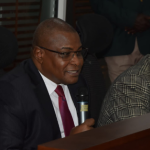Tens of thousands of women in West Bengal marched through the streets on Wednesday night to protest the rape and murder of a trainee doctor at a state-run hospital in Kolkata last week.
The Reclaim the Night march marked the culmination of nearly a week of intense protests sparked by the brutal assault and killing of the 31-year-old trainee doctor at RG Kar Medical College last Friday.
In response to social media calls, women from diverse backgrounds took to the streets of Kolkata and throughout West Bengal on a rainy Wednesday night. While the protests were largely peaceful, clashes occurred between police and a small group of unidentified men who stormed the RG Kar Hospital—the site of the doctor’s murder—and vandalized the emergency department.
Police used tear gas to disperse the unruly crowd, and some police vehicles were damaged.
Smaller protests were also held in other Indian cities, including Delhi, Hyderabad, Mumbai, and Pune. In Kolkata, women marched resolutely, holding protest placards, their faces illuminated by mobile phones, candlelight, and torches. Some carried national flags, joined by men of all ages.
During the marches and at various gatherings near a university, theatre hall, and bus terminus, participants stood united, holding hands as the humid air resonated with powerful chants of “we want justice.” Protesters blew conch shells, a sound considered auspicious. At midnight, as India marked 77 years of independence, the atmosphere shifted as a spontaneous chorus of the national anthem filled the air.
Despite the rain, the protesters continued their march, holding umbrellas over their heads.
“We have never seen anything like before in the city, such a huge gathering of women marching at night,” a reporter belonging to a news network said.
It was a night of barely concealed rage and frustration.
A woman, who joined the march well after midnight with her 13-year-old daughter said: “Let her see whether a mass protest can set things right. Let her become aware of her rights”.
“Women have no respect!” said another. “Our worth is less than cows and goats.”
“When do we get our independence? How long do we have to wait to work without fear? Another 50 years?” asked a student.
Sanchari Mukherjee said she marched with thousands of others from a bus terminus in Jadavpur, undeterred by the rain.
She met “people of all ages, from all classes, the well-to-do, the middle class and the poor”.
“I saw an elderly couple, the husband helping the woman to walk,” she said.
“One family brought their little girl along, perhaps so the memory of this event would be etched in her mind – how her parents stood up against injustice, and how she, too, can protest one day.”
Ms Mukherjee said the entire city seemed awake as the marchers passed by illuminated homes, with people peering out of windows and crowding verandahs to watch.
“They may not have participated but they were with us in spirit,” she said.
“‘We want justice’ had become the anthem of the march, and it didn’t feel like just a slogan,” Ms Mukherjee said.
“It felt like every young woman was deeply hurt and determined, frustrated that they still face these issues in 2024.”
Ms Mukherjee added that she had to walk a few miles to join the march because the streets were gridlocked late at night.
“I was instantly swept up in a sea of people heading to the protest site. There was no excitement, just a stoic determination to create an event which would become a symbol for the times to come.”
The protests have been driven by anger over local authorities’ handling of the young trainee doctor’s rape and murder. She had fallen asleep in a seminar room after a 36-hour shift last Thursday because there was no designated rest area for her. The next morning, her colleagues found her half-naked body on the podium, showing extensive injuries.
Police later arrested a hospital volunteer in connection with the case, labeling it a rape and murder incident. However, there have been allegations of cover-up and negligence, prompting the case to be transferred from local police to the federal Central Bureau of Investigation.
Despite limited resources, Kolkata’s Reclaim the Night march appeared to be meticulously organized. In an advisory, organizers welcomed women and individuals from marginalized sexual and gender identities to participate in the march. “Men are welcome as allies and observers,” the advisory stated, emphasizing that politicians were not allowed and that no party flags should be brought to the protest.
This was not the first Reclaim the Night march in India. Inspired by similar marches worldwide aimed at asserting women’s rights to walk in public spaces without fear, a march took place in 1978 in Bombay (now Mumbai) to protest the rape of a woman on the street.
The community-based art project and activist collective Blank Noise has organized several midnight walks in Delhi to encourage women to assert their right to walk freely at night. However, in terms of scale, the Kolkata march, echoed by smaller demonstrations in other cities, stands as the largest to date.
“We seized the night. We’ve never seen anything like this in the city. This is unprecedented. I hope it wakes up the authorities,” said protester Chaitali Sen.



